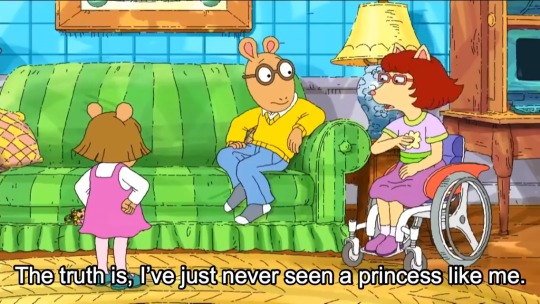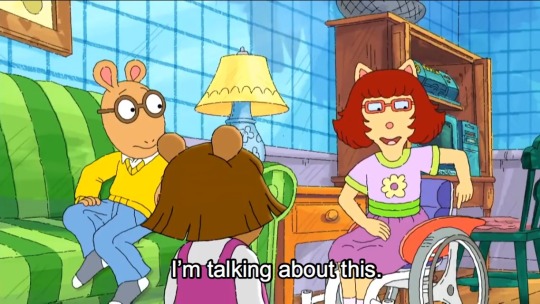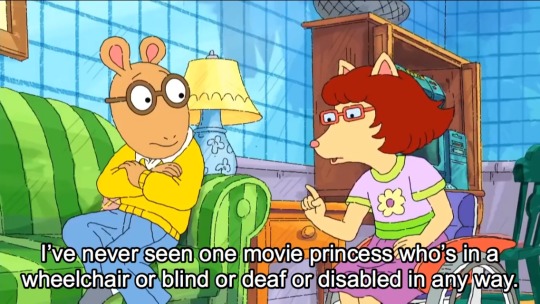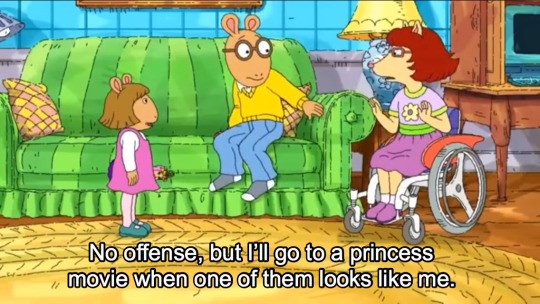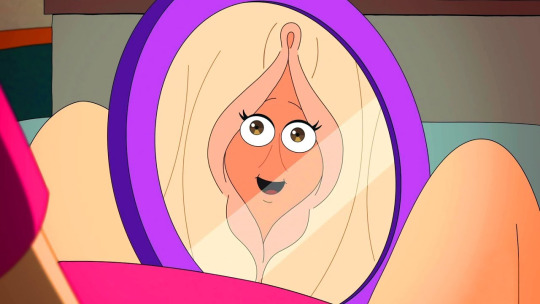Link
Follow the stories of Scarlet and Luka as they await an Asteroid that is approaching San Diego, CA.
1 note
·
View note
Photo
YEP
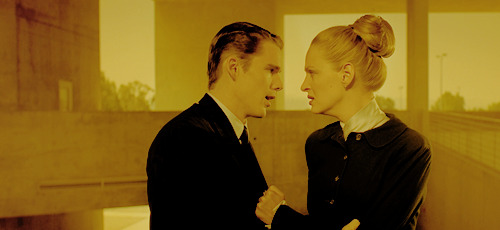



We now have discrimination down to a science.
Gattaca (1997, dir. Andrew Niccol)
3K notes
·
View notes
Text
Week 8
1. Excerpted quote:
“This place where they drained us of our dirth… and all the things that made us special. And just when you thought you could remember something, just when you thought you could see the past clearly, they would hit you with NEVERMIND.”
~Janelle Monáe in Dirty Computer
“A cyborg is a cybernetic organism, a hybrid of machine and organism, a creature of social reality as well as a creature of fiction. [...] The cyborg is a matter of fiction and lived experience [...]This is a struggle over life and death, but the boundary between science fiction and social reality is an optical illusion.” (1)
~Donna Haraway, A Cyborg Manifesto
2. Addition to the glossary of haunting:
D
Dreams... and memories
I never thought I could forget something like that, but I did. I just feel like I misplaced something. You know the feeling. When you were in the middle of searching for something but then you forget what it was. Sometimes I feel like my memories visit me while I’m dreaming, but I cannot quite pinpoint when the dream ends and the memories burst in, or are they just my desires? Do I miss them because I lost them or do I just want what I never had it? It doesn’t matter, I forget my dreams shortly after waking up into reality. They’re not real. Are they? They might not be real now, but what if they were? What if that memory actually existed? Then it would be real because it existed. OK, I’ll try again. I can just dream now, when it feels real. Then they would come true.
3. Answers to this week’s questions:
What is a monster? I hate to tell you this, but they’re real. A monster is a creature who has been wronged, who is in great pain, but the most terrifying thing of all is that it’s real, and what happened to them was real, and they remind us of it. And we don’t want to remember. We like to think of ourselves as the good guys in our stories, but we very well could be the villains. The ones that turned their backs, forgot and then killed the memory, and now there’s a monster. But we don’t speak of it. It’s taboo. Like what lies between our legs. Vaginas. Now those have suffered, some (darker ones) even more than others.
When thinking about gender with robots and monsters, I was reminded of Janelle Monáe’s song “Pynk”. The part when she sings “Boy its cool if you got blue, we got the pink." I might be off but this reminded me of the idea of how men accuse women of giving them “blue balls” after things were getting “hot and heavy” and the woman then decides to step out. It’s sort of like the song is saying, Like, that's not our problem. My vagina is mine. The insides are mine.
All this is a sharp contrast to what is happening to her when they bring her in as a “dirty computer“, for her memories and/or? dreams are seen as too proud and loud, just for wanting the same as the others for she felt oppressed and persecuted for her ideas. Her body was equally policed. To me, that song “Screwed“ was another version of The Beatle’s “Let it be“, or so it had a similar vibe. Like saying, we’re screwed, we don’t care, but by who? And then they hit NEVERMIND. It’s like all her memories and life histories are afterthoughts to the grand scheme of things. She forgets who she is, stripped from her identity, which I relate to the frequent theme we follow in class with regard to orphaned beginnings.
Now, if we’re thinking about the future, through music we can see how Janelle Monáe’s Emotion Picture, “Dirty computer“, constructs a form of liberatory future through the narratives that the employees of The House of New Dawn continue to erase. They don’t make distinctions between memories and dreams, for they are both seen as problematic. For me, Janelle Monáe is a form of cyborg, trying to imagine a world without gender, or at least one where gender constructions don’t hold her back. Yet, technology is so ingrained in her that the liberatory future she had made for herself was now being erased, by making her forget that she had struggles out there. She is gendered and suspicious, and for that she has to be cleaned.
"People used to work so hard to be free. Now all we have to do is forget." And that is how they do it. They tell you they know what’s best, that you cannot go ahead without them, and so they make you forget your past and your struggles, for they don’t matter. If there is a chance to create a just future we must remember the crimes in order to hold people accountable. Just waiting for the cyborgs to take over.
0 notes
Text
Week 7
1. Excerpted quote:
“Access for the sake of access or inclusion is not necessarily liberatory, but access done in the service of love, justice, connection and community is liberatory and has the power to transform. [...] I want us to not only make sure things are accessible, but also work to transform the conditions that created that inaccessibility in the first place. To not only meet the immediate needs of access—whether that is access to spaces, or access to education and resources, or access to dignity and agency—but also work to make sure that the inaccessibility doesn’t happen again.“
~“Disability Justice” is Simply Another Term for Love, Mia Mingus
“Why do some bodies matter more than others?” (6)
~Nirmala Erevelles, introduction to Disability and Difference in Global Contexts
2. An addition to the glossary of haunting:
W
Worth
I am worth it... because you get to reach your disability quota. I give a little color. I showed my worth through adversity, as a person of color. As working middle class. I wrote it in my entrance exam. Did I sell it right? Do I look just like what you had in mind? I am enough... so you “normal“ people can feel like you have no excuse. I’ll be your mascot. I’ll cheer you on. “Geez, I mean, if I could do it, you sure could... Except, no. I work really hard too. I have obstacles, everyone does, but mine are different, because I am different. I have just as much right as anyone else, I just wish I didn’t have to constantly prove my worth. It should be understood.
3. Answers to this weeks questions:
“If I were you, I would have killed myself!” (3, Erevelles), this particular passage really struck me. It is alluding to the person that their life others would consider as not worth living. But just because you could not possibly imagine such a life for yourself, does it mean that it cannot exist for someone else? What if that was another person’s reality? Ablism discriminates, because it points out the undesirable body. Biopower controls able bodies into thinking that they should create more able bodies, for disabled bodies are “suffering“ due to nature or a tragedy. Bad luck. So chin up. Because of this disabled bodies are encouraged to overcome who they are. They should aspire to be as ablebodied as possible, always showing people what you can do so that they can know that they should at least one up the disabled person. It perpetuates ideas on what bodies should be deemed desirable: white and able.
I don’t quite know how the idea of the orphaned beginnings applies to todays readings, but I do see how the disabled bodies are told from birth what they should aspire to be. Mia Mingus, for example, was adopted from Korea, so off the get go she was taken from her Korean homeland and molded into what her doctors and other adults thought she should be. It’s very hard to think about why would you subject a child to unnecessary surgery, but if it was done in order to provide what they believed was a better quality of life, than I could see how any parent could want that for their child. Parents want to know that they did everything in order to give their children a better life. “Normal children talk, see, walk, ...” they would think. “I just want them to be happy.” It wasn’t after seeing how other people who had the same exact condition but a different experience that people start to question if it was all worth it. Are they any different? Their worth seems to be from the work they put their bodies through. That seems to be the price you pay when your body is considered less than ideal.
When it comes to poor, black and female bodies, people always seem to need to work harder. In that way, race, gender and class relates to disability. Especially when thinking about bringing a disabled child into the world.Though I would love to celebrate a woman’s choice to have an abortion, I cannot help but wonder if in the cases where they found out the child had Down Syndrome, and there were socio-economical factors to consider, that new age eugenics would be at work. The medical industrial complex, as Mia Mingus calls, and the government, does not support the needs of the disabled bodies, and so decisions have to be made due to race and class.
All that I expressed earlier seems a bit dreary, but Mingus has hope that we will be able to find a liberatory future, through love. By this she means “to transform the conditions that created that inaccessibility in the first place”. I thought this idea was nice, because there are many ableist concepts we through around each day. Like for instance, “survival of the fittest”. I grew up thinking that species would do whatever it took to survive, and somehow caring for others, like babies and elders, ended up being in the mix. No human is brought into the world fully functioning, they are loved and cared for. If they are loved enough to be looked after, they might have a chance for survival, otherwise they would surely die. If we want to make sure that more disabled people have better health care and better employment, than we should exercise love.
I think that our biggest exercise of love would be to think of why we use blindness as a metaphor for ignorance; why do we use lame when referring to something that is not good?; why do we say crazy when something doesn’t make sense? Our language is one thing to hold accountable, but also listening to what people with disabilities have to say about their everyday struggles and the things able bodied people do that help and hurt their cases. We should be held accountable for our words and actions. For example, instead of just moving a scooter that was parked right in the sidewalk, make a petition to place a designated drop-off dock. Their personal hell could be dealt with if we were constantly checking if their rights are being respected and petition more when it is not enough. Intersectional identities can have dire circumstances depending on race and class, just as Nirmala Erevelles mentioned about her husbands case and the unemployment rate of disabled people. Because of that, it’s important to check your privilege, as Mingus says, without having to hold back your struggles and sharing them with others so that no one thinks that they have to go through it alone.
0 notes
Photo
“But reading about someone like you finding things to love about your body? I mean, clearly we have no excuse.“ ~Special (Netflix)
This whole connection between body positivity and inspiration porn, how it’s used to make abled/white people feel better about themselves by seeing that there is even worth in disabled or undesirable bodies, reinforces this idea of how biopower works and establishes more worth unto certain bodies.
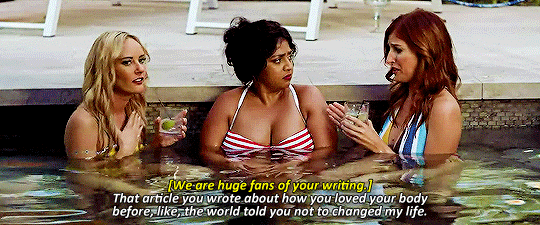
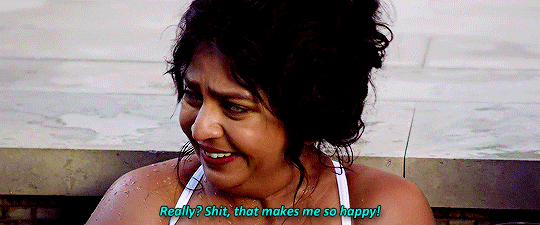
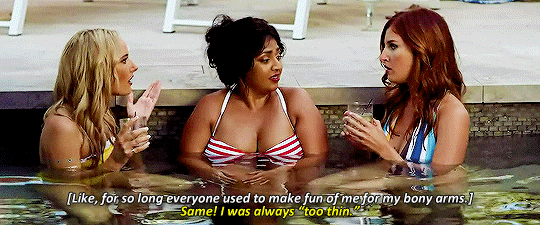

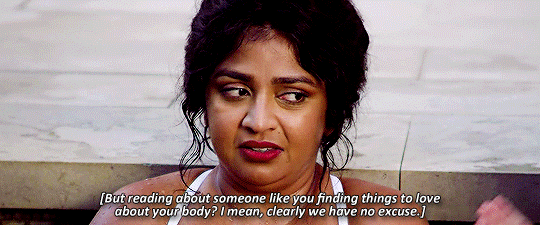
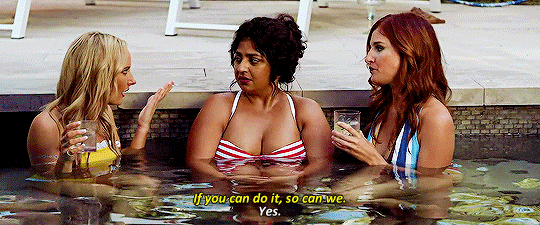


5K notes
·
View notes
Text
Week 6
1. Excerpted quote:
“The testimonies explored here track a settler-colonial narrative of evicted natives and usurped lands that centers the inscription of suffering and psychosocial maiming as a political strategy in Israel’s regime of control. These Palestinian women evince a reversal of the claim that they “infiltrated” Israeli land. Instead, it is revealed that Israel infiltrated the deepest, most intimate interiors of Palestinian life, inscribing their power on the bodies, breast milk, and blood of Palestine. Marking bodies and lives as unwanted waste advances
the violent and racist terror inherent to colonial regulations, laws, and
hidden machineries of oppressions.“ (191)
~Nadera Shalhoub-Kevorkian (2016) Everyday Militarism
2. An addition to the glossary of haunting:
B
Barren
Everything about me is barren. For the land I occupied was barren once I left. For the place I was dumped in wasn’t mine to grow in. For the children I had either died or were left behind. For my family was ripped apart and now I have nothing to hold on to. I could not keep my family together. I cannot hold onto what little family I have left. I am unable to get back. I am unable to grow anything. No. It’s not me. They took it. They took my womb. Where I grew. I am stunted. But I will never stop growing for I made no such promise.
3. Answers to this weeks questions:
This week’s topics were interesting and frankly, eyeopening. There was not much I could add to the discussion for I don’t know much about U.S. or international relations. But I was helped by some recurring themes we had touched on previous weeks. In the reading, Munira relates how she and her family felt like they were being haunted and terrorized by the Jewish-Israeli soldiers for being Palestinians (182). Though it seemed more for me like they were hunted for sport, ready to call them infiltrators, sort of like when Mexican, central and south Americans cross the border without papers or who overstay their visas are sometimes referred to as “illegals”, yet, this was their land, and in this case, they don’t wish to be granted refugee status, but to return to their homeland.
In this article by Nadera Shalhoub-Kevorkian, Palestinians seem to be haunted by the possibility of death. For the women, the haunting seems to creep into their bodily fluids, by affecting how they bled: “if we can’t bleed while going back home, when can we bleed?” (166), or breastfed: “They asked me to breast feed the baby, because they believed that my milk put babies to sleep.“ (176). In the case of Palestinians, settler colonial rule manifested itself through the dynamics of gender and ethnicity, which tried to control the lives of many displaced families. That’s to say, those that survived from gunshot fires by the Jewish-Israeli soldiers. None, either the living or dead, seemed very lucky.
Palestinians were stripped from their homes, but also from their families. It was as if their whole lives had been erased: their house and parents. Palestinians were now just a bunch of orphans from the war. But, from those orphaned beginnings there can also be the possibility of a just and free tomorrow. For Ismat, she committed perjury as an example of resistance towards Jewish- Israeli soldiers, as to say “I am not leaving cause this is my home“, and the acts of many returning to Palestine as “infiltrators“, construct a type of just and free picture. As of now, I don’t know how much will change of Palestine and the “infiltrators’“ current situation, yet, documenting the history, such as the website that we discussed in class does, and the podcast, where they would create a free, and just future to be able to act innocent and happy,. In the podcast, it seemed that being content was an act of defiance in itself.
Relating this week’s readings with last week’s readings on the war on terror, we see how settler colonial regimes try tho control the narratives through policies and history buffs. The narrative had been constructed in order to justify the means of the state/nation. It fed into the idea of what was a Muslim/Arab and their differences with other groups when it came to faith. That conflict between them was expected, for they belonged to the “Muslim/Arab world“. Yet, the conflicts seemed to have been fueled by nations such as France, England and the United States. Nations like these seem to reek havoc in order to gain control of land, such as the Jewish-Israeli government learned to do and to follow by example.
These conflicts seem so far away, yet similar dynamics have happened in the past and continue to this day in our own backyard. The displacement of Native Americans, for one. The criminalization of indigenous and other Latin Americans who cross the border is also another way in which the narrative has shifted from earlier accounts of the USA inquiring about cheap labor in Mexico, receiving them with open arm for many many years. The trade deals within the United States and the Middle East, in which the United States backs out of life threatening conflicts when millions, even billions of dollars are at stake. It is something much more common to us, yet powerful, if we just cared to listen.
0 notes
Text
Milk
“All I knew was that I had to get my milk to my baby girl.“
“And they took my milk!“
~ Beloved, Toni Morrison
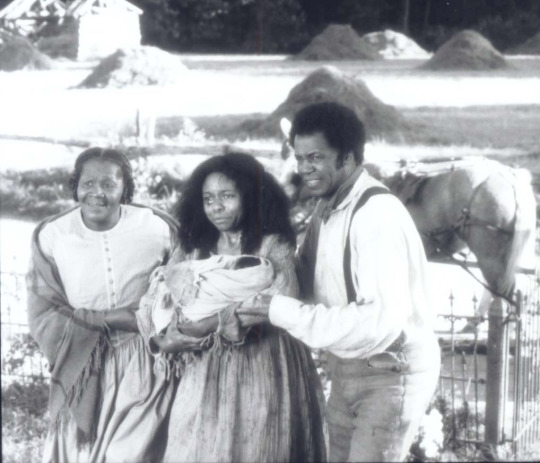
0 notes
Text
Week 5
1. Excerpted quotes:
“What these representations show, we believe, is that queerness as
sexual deviancy is tied to the monstrous figure of the terrorist as a way to
otherize and quarantine subjects classified as “terrorists,” but also to nor
malize and discipline a population through these very monstrous figures“ (126)
~ Monster, Terrorist, Fag” by Jasbir Puar and Amrit Rai (2002)
“This book is a challenge to the central and most cherished claim in the official
story—that the triumph of deregulated capitalism has been born of freedom,
that unfettered free markets go hand in hand with democracy. Instead,
I will show that this fundamentalist form of capitalism has consistently been
midwifed by the most brutal forms of coercion, inflicted on the collective
body politic as well as on countless individual bodies. The history of the
contemporary free market—better understood as the rise of corporatism —
was written in shocks.“ (18-19)
~Naomi Klein, Introduction to Shock Doctrine
2. An addition to the glossary of haunting:
S
Shocking
Let me show you something shocking. It ain’t just the lack of food and resources, it’s the fact that no one would listen. It’s the brown bodies that are deliberately left to wait while the rest of the world watches. The fact that it took days to reunite people after the floods and speak on the phone with family members that live far away. That some had to wait two days to be rescued from their homes. It’s the nightmare of bad weather and how it triggers memories of rain and winds. It’s the shock of having to wait weeks, sometimes even months, for a warm shower. Hurricanes and other natural disasters are shocking. Nation States make them traumatic.
3. Answers to this weeks questions:
When it comes to terrorism, we tend to have an idea of what type of bodies and genders fit this mold. It was tainted as both a threat to conservatives and liberals alike, as presenting both non christian ideals on monogamy and patriarchal female suppression. An image of both female and male bodies as both the biggest perpetrators and their victims. This type of dynamic reminded me of past “orientalist“ views on countries that were not seen fit to govern themselves when it was already a complex result of socio-historical and at times colonialist interventions. These ideas tend to fuel our own societal fears by also playing into traditional hetero or homonormative roles.
For people living in the US, many times brown bodies are striped of agency whenever they are reduced to their religious and ideological beliefs. Yet, there lies a diversity within Islam and non Islam, Ethnicity, and Nation States that shape how an individual sees and acts towards various shocking moments in history. As we discussed in class, many of these borders were the cause of outside/colonial regimes, and not from organic alliances and separations. In a way, it’s as if a death has to happen in order for there to be change, and sure, sometimes that’s what it took. Now, we know that change can happen within if we are able to try and decolonize the present and re-imagine the past and future.
For me, it was not surprising to learn that big nations exploited countries when they were at their most vulnerable. It was though to think about how instances of natural disasters could be considered of moments where “clean slates” could be made, where the weak would die out and the more “able” ones would be left or moved if need be. Sort of as if letting nature and colonial control over access and resources weed out the week into a population number that is more manageable. This now affects the country’s worth and its capacity to jump back on its own. It’s like this never ending cycle that keeps getting done on many scales, yet it is portrayed as assistance towards a cause.
I believe that there is a possibility for there to be some type of accountability by denouncing instances of colonial regime and exploitation. Also, to question what type of identities and/or bodies are policed and described by governments and to what end. We must ask ourselves what is the shock factor in all of this and why are countries interested in it. What do we gain by depicting certain bodies as deviant and what sort of ideology are we playing into when we single those bodies out as different. In a way, I saw how irrational interpretations of Muslim vs. Christian masculinity play into pop culture ideas of these communities.
Lastly, I would say that the way in which we as a society have used gender in order to shape the narrative of the actions of terrorist is quite shocking. They play into both conservative and liberal concerns regarding gender and it has been used quite often. It is also important to ask ourselves how notions of gender affect how we view terrorist of a different ethnicity. Do we subscribe the same gender roles to all the male perpetrators that appear on the news? How about female victims? Answering these questions will help us understand more for accountability sake but also to understand what other “monsters” are lurking out there and if we should include ourselves as such.
0 notes
Photo
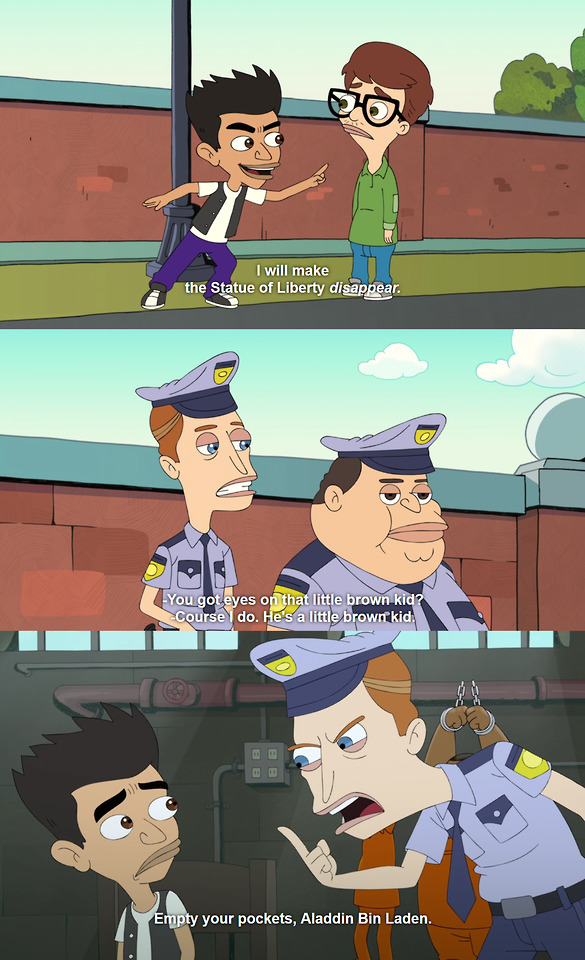
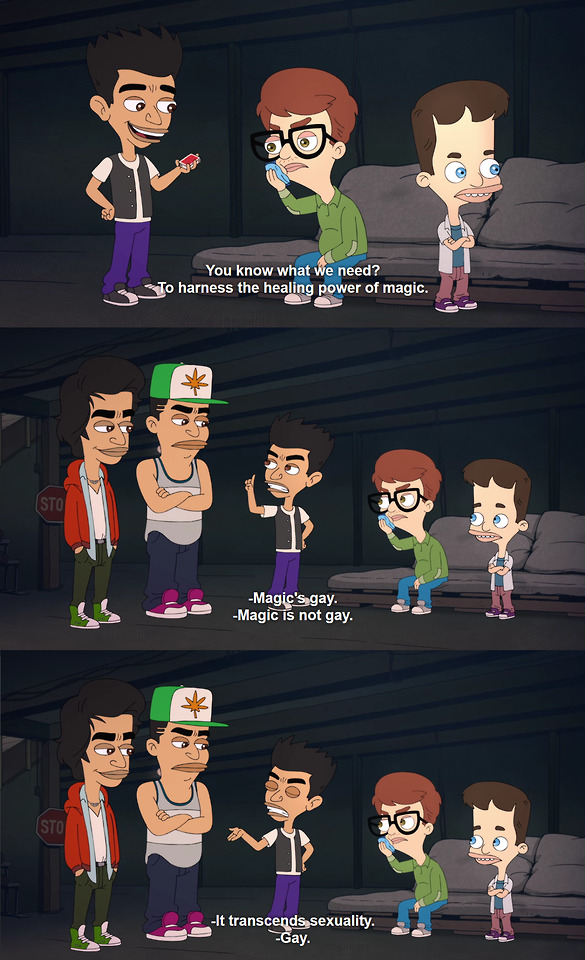
Poor Jay. Somehow his love for magic makes him gay and a terrorist.
“What these representations show, we believe, is that queerness as
sexual deviancy is tied to the monstrous figure of the terrorist as a way to
otherize and quarantine subjects classified as “terrorists,” but also to normalize and discipline a population through these very monstrous figures“ (126)
~ “Monster, Terrorist, Fag” by Jasbir Puar and Amrit Rai (2002)
0 notes
Text
Week 4
1. Excerpted quotes:
“Rather than being a site of women’s oppression and domination, irua ria atumia (women’s initiation) promoted an ethic of boldness and courage that provided a socio-historical platform for women to engage in militant anti-colonial activity in ways that were perceived as coequal with men. [...] these initiation practices are closely connected to the success of the Mau Mau struggle, and that irua ria atumia in particular provided an important basis for women’s vital participation in the movement.“ (691)
~ Njambi, Wairimu N. “Irua Ria Atumia and Anticolonial Struggles among the Gikuyu of Kenya: A Counternarrative on “Female Genital Mutilation”pp179-99 ed Oyeronke Oyewumi Gender Epistemologies in Africa
“I[Oyěwùmí] will argue that the concentration of feminist scholars on the status of women — an emphasis that presupposesthe existence of "woman" as a social category always understood to be powerless, disadvantaged, and controlled and defined by men — can lead to serious misconceptions when applied to Oyo-Yoruba society. In fact, my central argument is that there were no women — defined instrictly gendered terms — in that society.” (xiii)
“Ultimately, the most important point is not that gender is socially constructed but the extent to which biology itself is socially constructed and therefore inseparable from the social.[...] The cultural logic of Western social categories is founded on an ideology of biological determinism: the conception that biology provides the rationale for the organization of the social world. Thus, as pointed out earlier, this cultural logic is actually a "bio-logic."“ (9, 10-11)
~ Oyeronke Oyewumi. The Invention of Women: Making an African Sense of Western Gender Discourses. Preface and Ch.1
2. An addition to the glossary of haunting:
C
Colonialism
I remember reading a story in school called Peyo Mercé enseña inglés (Peyo Mercé teaches English) by Abelardo Díaz Alfaro (1947). In the story, Peyo Mercé, an old Puerto Rican rural teacher, is ordered by his supervisor, Mister Escalera, to teach as much English as possible in his class, a language that he does not master or like all that much. On the first day after receiving his new orders he scouted the pages of the new book for anything relatable for the children that were not the “well fed and well dressed“ kids on the cover.
Once the children arrived he saw “their vests with tiny straps and plantain stains, their straight toasted manes, their small bunched up feet that were red from threshing the earth and their faces withered with the weak gleam of their hungry eyes“ (my translation). He finally found a pictures of a rooster and was able to make them repeat “cock, cock, cock“. When it came time for them to repeat the cock’s sound, “cock-a-doodle-doo“, the kid he called on, Tello, said that he did not know the answer. When Peyo Mercé told him that they had just read it out loud, Tello said that he had heard no such thing. When Peyo repeated the sound “cock-a-doodle-doo“, Tello said as if excusing himself: “That might be the call of the American rooster, but the one at home calls out “cocoroco” clearly." And then they all had a laugh.
3. Answers to this week’s questions:
I have always asked myself how the category of race in clinical settings and scientific research are defined. Many time there isn’t any explanation as to what they mean by these categories. If they are testing a drug or researching on a diet of some sort, can we truly say that there might be a correlation between some hard facts and how a person sees them self? That is not to say that people associated to certain socioeconomic backgrounds are not more affected by something, but that we should look into how those categories are made. If ideas on race are social and historically created, then why not other categories such as sex? Plants and other animals are not binary when it comes to sexual reproductivity, so why should we assume that humans are too? Evidence and not “rare exceptions” should convince us that sex is as much a bio-logic creation than the vary science that takes it for granted.
These ideas don’t come out of nowhere. Colonialism creeps in through every surface if it’s somehow left a past where people are still affected by it in some way or another. Colonialism brings its own ideas on race and sex to a new territory to try to make sense of its people in order to control them. It’s important to know that what may have made sense to the colonizers, doesn’t necessarily make sense to the colonized. That is why this week’s readings [Oyěwùmí] emphasized in the fact that we should look into the same community for categories on gender/sex, since Western ones won’t necessarily align with present kin relationships or governments.
A lot of times, what happens after colonialism, or post colonialism, is that when people’s cultures are taken away you also kill them in a sense (rephrased from Taking Root: The Vision of Wangari Maathai). People might forget their culture and assume that the way they identify themselves has always been static, instead of changing. I believe that in the film about the Green Belt movement, the women were working towards their liberatory future by taking control of their resources. In the case of the Mau Mau, women circumcisions allowed them to work on a liberatory future which actually achieved elections in their country.
Another thing I learned was that just as the term woman had different meanings throughout Wangari’s life, we can assume that other people could face the same thing: for example, she[Wangari Maathai] never saw herself as a woman, in the Westernized sense of the word, yet she was criticized for being a woman going against powerful men that benefited by colonialism.
Lastly, I think it is important to keep in mind that if I ever look into gender on my own but especially in other settings, that I should be more mindful as to why I see certain people as women or men. Do I really wish to make that distinction? Or more importantly, would I be able to have a case where I see that they also divide roles and labors similarly to Western contexts, but to not just apply my preconceived categories, but really try to understand that particular history?I believe that, if this week we learned anything from the film, was that we can hold accountability multiple times. Orphaned beginnings, either through English rule or other forms of colonialism, can strip people of their coded cultures, but they can be brought back through community practices for sustainability.
0 notes
Quote
When I went back home, I was constantly being reminded, I’m an African woman, and so there are certain things I shouldn’t do, certain ambitions that I should not entertain. That was a problem for me because I had never thought of myself as an African woman, never thought of myself as a woman to begin with. For me the limit was my capacity, my capability.
Wangari Maathai
http://takingrootfilm.com/the-film/words-from-wangari/
1 note
·
View note
Video
She was the first African woman to receive the Nobel prize. Here is the extraordinary story of Wangari Maatai, one of the world’s most important ecologist.
2K notes
·
View notes
Photo
Mala Mala
A documentary on Trans identity and Drag Queens in PR.
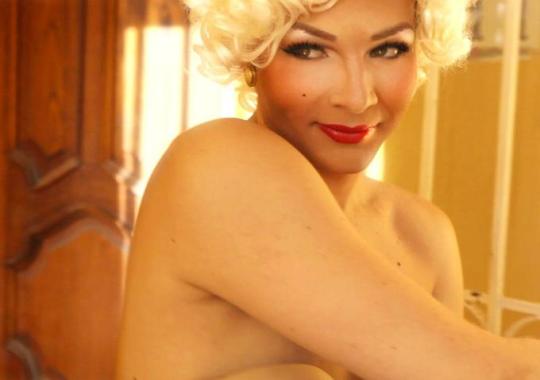

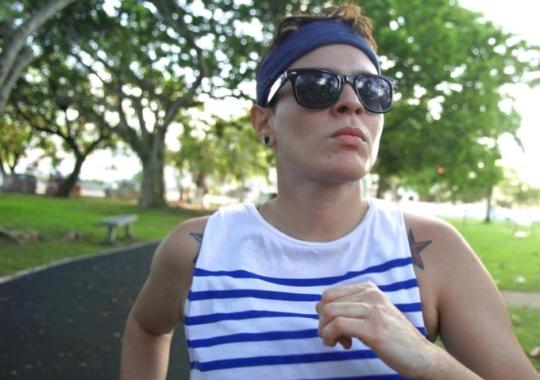
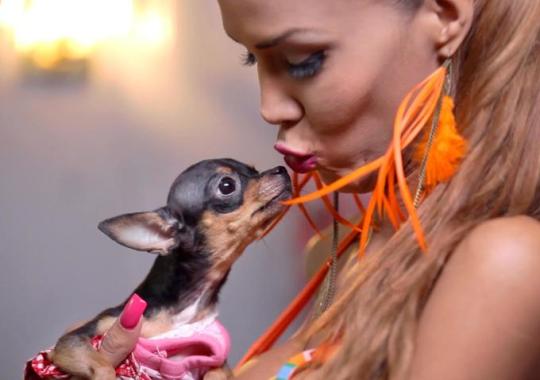

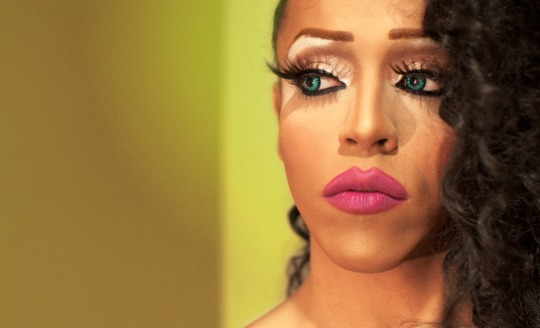
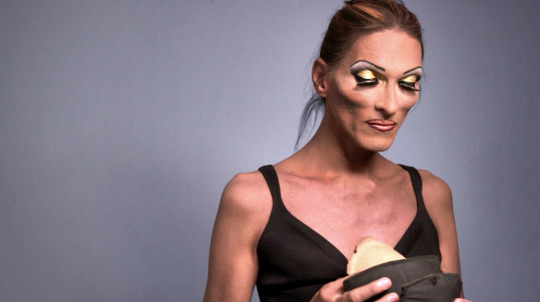
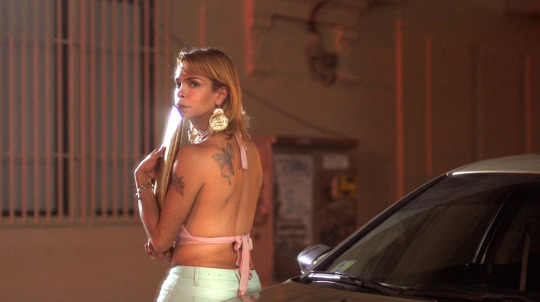
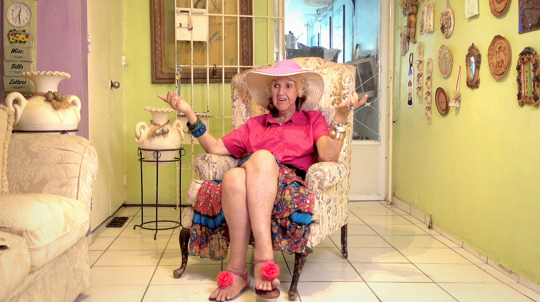
New Yorkers, if you’re not seeing MALA MALA this weekend, you might as well not see anything…
Learn more here.
42 notes
·
View notes
Text
Week 3
1. Excerpted quotes:
“For people of color have always theorized - but in forms quite different
from the Western form of abstract logic. And I am inclined to
say that our theorizing (and I intentionally use the verb rather than the
noun) is often in narrative forms, in the stories we create, in riddles
and proverbs, in the play with language, since dynamic rather than
fixed ideas seem more to our liking.” (52) ~ “Race for Theory” by Barbara Christian
“the film was a graphic documentary portrait of the way in which colonized black people(in this case black gay brothers, some of who were drag queens) worship at the throne of whiteness, even when such worship demands that we live in perpetual self-hate, steal, lie, go hungry, and even die in its pursuit. The “we” evoked here is all of us, black people/people of color, who are daily bombarded by a powerful colonizing whiteness that seduces us away from ourselves, that negates that there is beauty to be found in any form of blackness that is not imitation whiteness.“ (149) ~ bell hooks, “Is Paris Burning?”
“The danger lies in ranking the oppressions. The danger lies in failing to acknowledge the specificity of the oppression. The danger lies in attempting to deal with oppression purely from a theoretical base. Without an emotional, heartfelt grappling with the source of our own oppression, without naming the
enemy within ourselves and outside of us, no authentic, non-hierarchical
connection among oppressed groups can take place.“ (29) ~ “La Güera“ by Cherríe Moraga in THIS BRIDGE CALLED MY BACK: WRITINGS BY RADICAL WOMEN OF COLOR
2. An addition to the glossary of haunting:
N
Narratives
I apologize, I should have been more clear. I shouldn’t have bored you with the minor details of the everyday power dynamics I am subjected to. I’ll explain to you how I was being repressed rather than trying to narrate my own experience for my own sense of empowerment.
3. Answers to this week’s questions:
This week we talked about the Third World Women’s Liberation Movement (TWWLM), where women advocated for intersectionality within protest movements. The movement emerged after women were still subjected to traditional gender roles even within social movements. The TWWLM wanted to change that. One of the ways women tried to do was to write books. “This bridge called my back“ was one of those books, which had a lot of intersectional narratives from different ethnicities and gender identities. One of the entries I enjoyed the most from the book was “La Güera“ by Cherríe Moraga, because it reminded me of how perceptions on race change either through knowledge of your family’s history and/or how it relates to some of your other intersectional identities. In my case I am considered white where I am from, but in the United States I am seen as Latinx. Many times I have felt this pressure to incorporate new identities and to claim my identity as a woman of color in the United States. Yet, I do not feel comfortable doing so, first, because it does not represent my experience growing up, and second, because I would be minimizing other peoples’ particular struggles and experiences. Maybe if I were to live here long enough I would have my own stories relating my struggles. But Ideally I would’ t have to.
Another reading we did was bell hooks’ chapter titled “Is Paris burning?“, a reference to the documentary film “Paris is burning“. Here hooks claims how the gay/trans/queer folks who participate at the balls in the documentary film try to embody white beauty through strutting. In class many of my classmates disagreed and said that realness, much like silence in the other documentary film we saw in class titled “Tongues Untied”, where to announce you’re a gay man dressed in drag can be a very dangerous thing, and so you keep it inside. I find that when it comes to clothes and performance, you can (re)claim space, and make it your own. I feel that hooks saw this worshiping at traditional standards of white beauty as an extension of colonizing whiteness, and therefore, the remnants of a haunted past that creates monstrous presents, in the film particularly, where black and latinx youth are disowned and/killed..
For “Race for theory”, Barbara Christian paints her own picture of orphaned past, where people were not only stripped of their names, lands and humanities, but also of the many things concerning their stories, like how to think about them through theory. I believe that black people always had to watch what they said and did, and so it is understandable that they would find different ways of describing their experiences. It’s as if they’re taking control of their stories and with it creating a more liberatory future through narration.
Then in class we saw bits of Beyonce‘s Netflix film “Homecoming“. In it, Beyonce explains how she got back into shape for her concert at Coachella. Lemonade, Beyonce’s visual album, has many narrations, and it is also a celebration of her African American roots. It’s as if she is reclaiming her voice, her identity and her body through all of this. In a way we all want t go back to the land, like on the Chef’s Kitchen episode of Mashama Bailey, who returned to Savannah. In Beyonce’s case, she belongs in the stage
Lastly, This week I learned a lot about the many ways to counteract others take on ourselves, like voguing for example, where you can “fight“ through your dance moves. Also, we saw how Venus’, the representation of the black woman, keeps being victim of colonial/patriarchal crimes, like we saw happen with Venus Xtravaganza. All of the topics from previous weeks keep coming back. It’s as if we always discover new ways in which we are haunted, but we always find ways and perspectives to try to gain accountability.
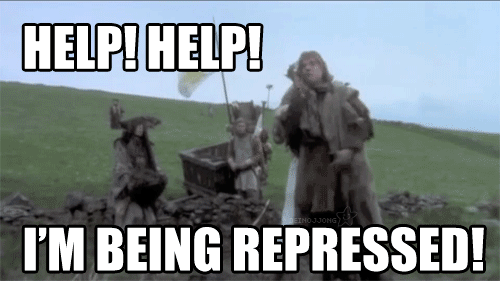
0 notes
